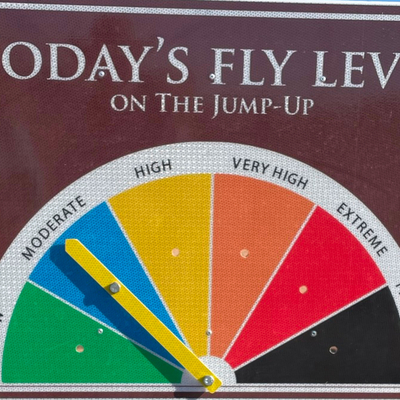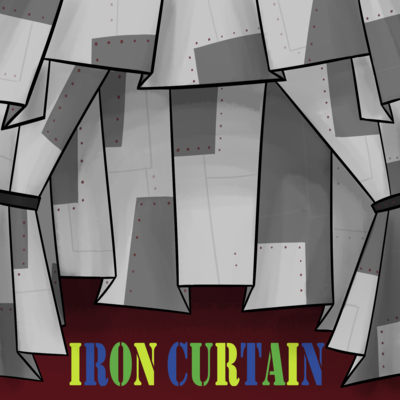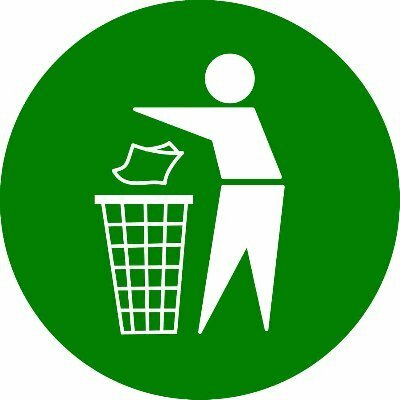Recycling in the US (and many Western countries, for that matter) is a sham. It always was.
In reality, most of the plastic placed in recycling bins were never turned into new products.
Now China has stopped taking that waste, the myth of near infinite consumption without the guilt of waste has been exposed for the lie that it always was.
That’s not to say that we shouldn’t aim for a sustainable circular economy. Of course we should.
But we’ll need much bigger changes to make it happen.
"For decades, we were sending the bulk of our recycling to China—tons and tons of it, sent over on ships… But last year, the country restricted imports of certain recyclables… Waste-management companies are telling [municipalities] there is no longer a market for their recycling.
"These municipalities have two choices: pay much higher rates to get rid of recycling, or throw it all away.
"Most are choosing the latter.
"When [its kerbside recycling] program launched, Franklin [in New Hampshire] could break even on recycling by selling it for $6 a ton. Now the transfer station is charging the town $125 a ton to recycle, or $68 a ton to incinerate.
“This end of recycling comes at a time when the US is creating more waste than ever. In 2015, the most recent year for which national data are available, America generated 262.4 million tons of waste, up 4.5% from 2010 and 60% from 1985.”
https://www.theatlantic.com/technology/archive/2019/03/china-has-stopped-accepting-our-trash/584131/
#Recycling #CircularEconomy #Politics @green #ClimateChange #Environment
The fact that my food comes in an endless stream of plastic instead of just waxed paper is not my choice. The companies that make these products should be held legally responsible. Non recyclable plastics should be illegal for disposable purposes, and the plastics should be taxed enough to run regional recycling centers - with it being illegal to NOT use a certain percentage of the plastics recovered from these centers.
This is a problem with a clear legal solution, and guilting consumers into feeling responsible is not effectively solving it and never will. Nor was it really designed to, it was just a scheme to divert responsibility.
@Urban_Hermit @green You’re absolutely right.
There’s an absolutely massive cross-subsidy for companies that manufacture and sell products.
They’ve almost never been financially responsible for the end-of-life costs of the products they make. Or, for that matter, the full social and environmental costs of their manufacture and use.
Virgin plastic is cheaper to manufacture than plastic that has been recovered and recycled. That recovery and recycling cost is generally not paid by the original manufacturer.
Instead, some of those costs are borne by taxpayers and municipal ratepayers. But most have been carried by developing countries, which have been paid to dispose of the waste out-of-sight and out-of-mind.
I strongly suspect that if the full costs of recovery and recycling were included in the upfront cost of plastic products, many would simply not be viable. Certainly not for disposable products or packaging.
Instead, we’d have less packaging, and more products would be either reusable or biodegradable.
@Urban_Hermit @ajsadauskas @green
Rather than calling it guilting, perhaps take it as good advice?
Often essentially all the focus is placed on the companies who produce the stuff, then we go and buy little plastic bottles of cola.
We don’t need to drink cola.
Clearly in that case, in buying the cola, we are putting brief pleasure and convenience over the environment. Maybe while telling ourselves we have a conscience and trying to place the responsibility solely with companies that exist because people buy the product.
@siobhansarelle @ajsadauskas @green
No, we are not.
The plastic bottles that we buy Coke in are fairly recyclable, and they can be used as high quality water bottles a hundred times before they are recycled. Most of the plastic waterproof containers, as well as glass jars, tin cans, aluminum cans, and paper cartons - all that is well recyclable.
But, all those bags that you have to rip open and the films that your food is wrapped in, that is not.
@Urban_Hermit @ajsadauskas @green
We have climate crisis.
We have people buying unnecessary stuff that unnecessarily uses up resources, energy, fossil fuels, and pollutes the environment.
Clearly largely we are putting pleasure and convenience over the environment and climate crisis.
I don’t see how that could be denied.
@siobhansarelle @ajsadauskas @green
No one is denying it.
Do what you can, where you can.
Closing the loop and saying that disposable products that can not be recycled should not be produced is a good thing. Doing this good thing does not prohibit other good things from being done. In fact, it helps to confirm a precedent.
Consumers are not clamoring for unrecyclable trash. That is not where the demand is.
Don’t conflate issues unnecessarily. Pls.
@siobhansarelle @ajsadauskas @green
Those flimsy, contaminated, torn, light weight films and plastic coated boxes are nearly unrecyclable and they are contaminating our environment. And I am telling you and everyone on Mastodon that wax paper is a simple, moisture proof solution. No one needs to feel guilty for eating the food they can afford, and for decisions they did not consent to.
This is easy, there is no reason to fight it.
@Urban_Hermit @siobhansarelle @ajsadauskas @green honestly, why drink Coke? It cleans coins FFS. There is an isle in the supermarket that only contains drinks like this in plastic bottles. Capitalism and no social conscience.
@siobhansarelle @Urban_Hermit @ajsadauskas @green Requiring consumers to evaluate how great an environmental impact a specific purchase is going to make is an extremely ineffective way of managing how consumption as a whole effects our planet. Government and producers have to regulate how products are made and bare the costs of mitigating long term and large scale use. People should be able to have a soda without fear it’s killing the planet.
@CinciMike @Urban_Hermit @ajsadauskas @green
Btw, I wasn’t necessarily advocating anything with my comment about people putting ourselves and immediate fairly brief and small perceived benefits over the environment.
I was pointing out the fact that we do, and therefore each time we do, at that point, it follows that we deprioritise the environment, using up resources, pollution md so forth.
I do it, practically everyone does it.
I can of course spend lots of time complaining about companies not being better, companies which exist and do things this way because we buy their products and consume them, which can take years, or I can do that *and* at least change my behaviour where I can. That requires accepting I am part of the problem, undoing avoidance behaviour stuff, and some sacrifice, which isn’t easy as I think we are caught in a cycle of it, but it may be necessary.
@CinciMike @Urban_Hermit @ajsadauskas @green
We could fix recycling, we could reuse more. Many places have a problem with litter. Litter doesn’t necessarily get recycled. Litter is I think a good indication of the problem with culture and valuing things.
Walking near school routes, around the sides of roads etc, plenty of plastic bottles and so on, discarded. It’s not massive corporations doing that.
@siobhansarelle @CinciMike @Urban_Hermit @green Even with litter, there are structural factors that contribute it.
Other people in this thread have mentioned the container deposit schemes in Australia.
Here’s the details, but basically there’s a 10 cent tax when you purchase drinks in plastic bottles or cans. That 10 cents gets refunded to you when you return the container to a recycling centre. If someone else has dumped a can, you can return it to claim their deposit: https://www.epa.nsw.gov.au/your-environment/recycling-and-reuse/return-and-earn
(Personally, I’d make the deposit higher, but the point is that it creates a financial incentive not to dump bottles, and to pick up any that others have discarded.)
Another solution might be for businesses to be forced to charge for the cost of recycling and recovering their packaging in the upfront cost.
If you want a more blunt policy instrument, governments could outright ban the use of some packaging materials that aren’t easily recycled or biodegradable.
Some food co-ops make customers bring their own containers and scoop the amount of the food they want to buy, rather than selling foods prepackaged. If mainstream retailers were forced to do this, it would massively cut the amount of packaging used.
So no, even littering is not just an individual choice. There are structural factors at play, and public policy choices that can make a difference.
@ajsadauskas @CinciMike @Urban_Hermit @green
Some stuff:
I think all but 2 Australian states have the container deposit scheme.
The earliest was put in place in 1977.
3 common thermoplastic types are recyclable but the recycling of low-density polyethylene was discontinued in 2022 (plastic bags, 6 pack rings etc).
Littering is still prevalent.
Littering on beaches has been cut by 29 percent over a 6 year period.
In 2020, Australia recycled 16% of its plastic packaging,
Most of Australia’s waste goes to landfill. Probably all litter does.
China stopped imports leading to Australia not being able to recycle much or most of its recyclable waste.
Australia produces about 20 million tonnes of landfill waste each year for 600 official landfill sites and maybe 2,000 with unofficial sites.
75% of landfill waste goes to 38 sites.
60% of the average bin is organic waste.
@ajsadauskas @CinciMike @Urban_Hermit @green
I realise that perhaps this discussion started with recycling more stuff, but I don’t think that is the prime issue, for me the prime issue is reducing suffering, reducing risk or impact on the environment and of climate catastrophe, and I think that requires more than trying to do better recycling.
@ajsadauskas @CinciMike @Urban_Hermit @green
I used to do the returning bottles thing and getting a little money back, as a child.
It would likely require enough people to give a shit. The people who do, are probably the people who have a shit anyway. Or it’s not enough reward to make it work.
The point about other people picking up someone else’s litter is a good one, but why not just pay more people to pick up litter?
That doesn’t change the culture, it probably makes it worse since there’s the attitude that stuff is disposable and there will always be someone else to clean up.
I think in practice, it might reduce the problem in some places, but mostly it is unlikely it will, particularly in the most populated areas.
Also much of the problem here is with the stuff that was in the containers and then of course there is still the issue of much of the containers not being recyclable.
@CinciMike @Urban_Hermit @ajsadauskas @green
People already do.
deleted by creator
@Urban_Hermit @ajsadauskas @green followed! ITA!
I have a question for you. Do you mean “Recycling is a sham” or “*Plastic* Recycling is a sham?” I definitely agree with the latter but not the former. Paper and Alumin[i]um definitely get recycled. Plastic does not, though.
@IronCurtain @ajsadauskas @green
Depends on where you are and what plastics. Generally plastic film is not recycled.
Much of the problem is still due to people not realising what can or cannot be recycled, placing things that are too dirty into the recycling, and contaminating the entire recycling bin.
@siobhansarelle @ajsadauskas @green That’s extremely fair.
@green @IronCurtain @ajsadauskas neither is completely true nor completely false. And there’s a lot more to total impact than recycling.
@BenAveling @green @ajsadauskas Fair enough.
@ajsadauskas @green most of the recycling ends up in landfill anyway, people are duped in to thinking it gets recycled, specially where I am, after the recycling plant caught fire and hasn’t been replaced!
@skyfire101 @green And there’s been people like Liz Kasell from RedCycle who have claimed soft plastics were being recycled, when really they were being stockpiled in warehouses.
Here’s what Liz was claiming in editorials to environmental publications: https://thefifthestate.com.au/columns/spinifex/the-future-of-soft-plastics-recycling-is-here/
And here’s what was actually happening: https://www.abc.net.au/news/2022-12-09/epa-victoria-soft-plastics-melbourne-redcycle-recycling/101754460
#recycling #CircularEconomy #sustainability #plastic #AusPol #waste #plastics #recycle #environment
@ajsadauskas @skyfire101 @green just going to put it out there, I expect jail time for all those involved in this mass fraud and deception. That’s including Coles and Woolworths who I assume vetted their partners business practices.
@cooopsspace @ajsadauskas @skyfire101 @green
In EU it is about a third that is recycled, and still way too little.
With increased online shopping we get much more packaging material.
https://www.europarl.europa.eu/news/en/headlines/society/20181212STO21610/plastic-waste-and-recycling-in-the-eu-facts-and-figures@energisch_ @ajsadauskas @skyfire101 @green Australia we just had a bunch of mass fraud occur where supermarkets could greenwash their way out of reducing plastic by calling soft plastics recyclable. And when the scheme from a third party company failed and it was found that there were numerous warehouses of store material the supermarkets said “oh well, we will take over the company to make sure it’s recycled” and then got an exemption to dump it all.
@cooopsspace Trash is big business, especially when you can cheat. There is a lot of criminal things going on: legalized crimes. For example, EU allowed electronic trash to be delivered as “used goods” to African nations where (with the help of one or more corruptable politicians) these “used goods” end up in soil & water poisoning trash heaps in poverty stricken regions. som@ajsadauskas@aus.social @skyfire101 @green
@energisch_ @skyfire101 @green environmental crime should be amongst the highest punishment of all crime, environmental crime is a giant “fuck you” to all 7 billion of us and should involve jail time.
@energisch_ @cooopsspace @ajsadauskas @skyfire101 @green
I go to the shop for groceries, I put the products in a reusable bag.
I have my groceries delivered, I put the products in a resizable bag at the door.
I buy cosmetics from a shop. I put them in a reusable bag.
I have cosmetics delivered, they come in a small cardboard box.
Generally speaking, apart from stuff from eBay where the seller appears to have used a whole roll of plastic tape, maybe some often biodegradable packing material, there is little difference in use of plastic packaging.
The issue appears to be more with how the products themselves are packaged, and the lack of reusable containers.
@siobhansarelle some online salesshops still use a lot of plastic packaging to prevent breaking. They could us paper or shredded hay etc. but prefer styrofoam or bubble wrap @cooopsspace @ajsadauskas @skyfire101 @green
@energisch_ @cooopsspace @ajsadauskas @skyfire101 @green
Legislation would be good, to stop this, before that though, possibly avoiding places that do use excessive plastic packaging.
Avoiding online shopping could be good, but for some people that might mean using a car to go and do the shopping, which likely has a greater impact on the environment than the packaging, or having it delivered by a single vehicle that delivers to many homes,
@siobhansarelle @energisch_ @cooopsspace @ajsadauskas @green I recently had a book delivered from Amazon where they had sort of gone to far the other way. While a paper bag may be good environmentally, it was lousy for a large hardback book which ended up bent. They used to use a nice rigid cardboard book sized carton for sending books.
@energisch_ @cooopsspace @ajsadauskas @skyfire101 @green
I wonder about the viability for a business that, for example, produces cola and other soft drinks, keeps them in large containers, then goes around filling people’s home containers up
@siobhansarelle @energisch_ @cooopsspace @ajsadauskas @green sounds like a good idea, but viability I am not so sure, but thing is I don’t know the amount of containers out there. It could be very viable if they have the right drinks for where they are. 🤔
@ajsadauskas @green so much of it is being illegally imported and dumped in India. People think it’s being recycled, but it’s actually being burnt in some desperately poor area where people cannot protest.
@Jon6705 @ajsadauskas @green Google “illegal plastic imports to India” and you’ll get dozens of incidents reported.
@Theorem_Poem @ajsadauskas @green
😢
Every country needs to be as self-sufficient as possible.
If a country can’t handle the #Waste / #Rubbish / #Trash / #Litter it produces, in-house, then it’s time to cut down on the waste produced, not dump it off on another country, be it India, China, or wherever.
We need to work towards the #CircularEcomony if we are to survive.
@ajsadauskas @green
Why can we not have a deposit on glass and aluminum?deleted by creator
deleted by creator
Because capitalism and plastic is cheaper. Corporations like Coca Cola (single largest plastic polluter) perpetuate recycling because it lets them off the hook for creating a tremendous amount of plastic waste to package diabetes and tooth decay in a bottle.
@fixatedpersonsunit @ajsadauskas @green I have thought the same things. There used to be a great recycling industry recycling bottles and cans. They even paid you for them.
@ajsadauskas @green @kpmitton it was started by petroleum companies iirc, it’s been a great way to get people to yell at each other rather than focus on companies making billions who could be regulated & taxed into improving society
@voron @ajsadauskas @green @kpmitton I’m curious what people think of Precious Plastic: https://preciousplastic.com/
@ajsadauskas @green I’m a Desert Storm vet and I saw people being murdered for CRUD oil. After DS the amount of throwing away of plastic and the like is just sickening 😡
@ajsadauskas @green Of course there’s a paywall.
Merica.
@green @ajsadauskas Sadly, this article is 4 years old which makes me curious what has happened - better or worse - since then.
@ajsadauskas @green this article is from 2019 and chinas decision to stop purchasing other countries waste is on a global scale. They did not just stop buying from the USA. The solution needs to be to stop producing plastic.
@ajsadauskas @green @liztai one major irony of the eco-theater of plastic recycling is that you need to thoroughly wash it before putting it in the bin. People are wasting millions of gallons of water a year cleaning items headed to landfills.
@kballweg @ajsadauskas @green @liztai Cleaner landfill though? Future generations will thank us for that at least 🫠


























